creamy cottage cheese broccoli pasta
I’m all about a veggie-packed pasta, which is why you’ll find a full pound of broccoli here (that’s more broccoli than noodles!). Plus, I worked in 26 grams of protein per serving by using a full cup of cottage cheese and opting for high-protein noodles. I find Barilla Protein+ tastes the most like classic pasta, while Banza is a great GF option. If you are using Banza, cook it a minute or two less than the package directions, as it tends to fall apart easily.
If you have a favorite brand of protein pasta, let me know in the comments. I’m always looking to try new ones!
how to prevent the cottage cheese from separating
Having cooked a lot of cottage cheese pastas, I’ve experienced my fair share of grainy sauces. (This can happen when cottage cheese is heated). Here’s what I’ve learned along the way to ensure your sauce stays creamy:
- 1. Use whole-milk cottage cheese (I always use Good Culture).
- 2. Let the cottage cheese come to room temperature while you cook the pasta.
- 3. Cook the pasta right away to give it a chance to cool off a bit before you add the sauce.
- 4. When you do add the sauce, do so completely off the heat.
If you try this pasta dish and love it, add this baked cottage cheese broccoli pasta to your dinner list ASAP.
see it in action…
creamy, protein-packed broccoli pasta
serves 4
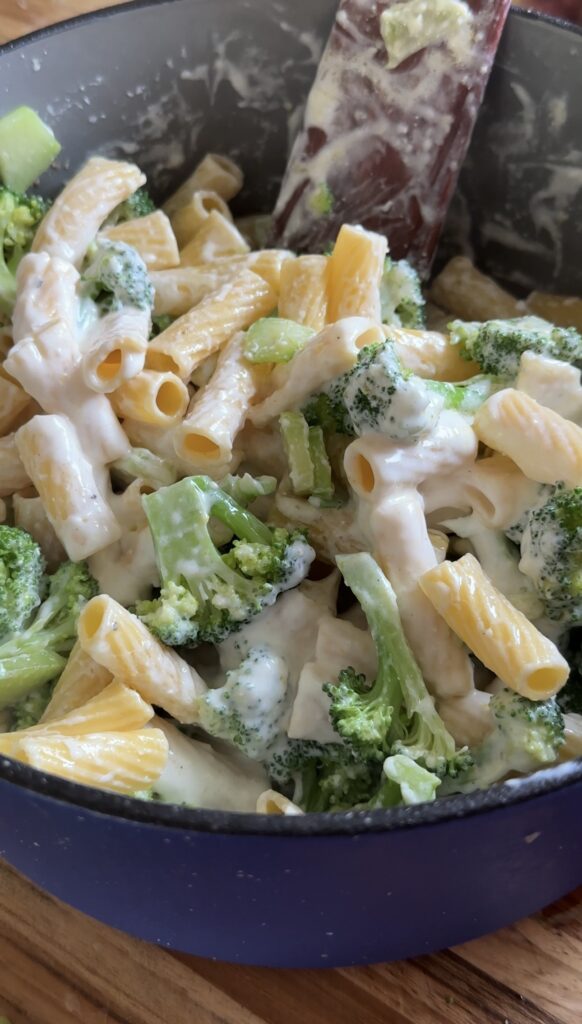
Ingredients
- 8 ounces (1 cup) whole-milk cottage cheese (I always use Good Culture)
- kosher salt
- 1 pound broccoli (~2 heads)
- 2 large cloves garlic
- 8 ounces protein pasta, such as Banza (GF)* or Barilla Protein+ (I prefer a short noodle like rigatoni or penne)
- extra-virgin olive oil
- 2 ounces freshly-grated Parmesan cheese (about 1 cup), plus more for serving
- 1 lemon, zested and juiced
- freshly ground black pepper
Instructions
- Take the cottage cheese out of the fridge and let it sit on the counter to come to room temperature.
- Bring a large pot of heavily salted water to a boil. Cut the broccoli into bite-size florets. Trim off the tough parts of the stem; discard. Thinly slice the stem crosswise. Peel and thinly slice the garlic.
- Add the pasta to the boiling water. About 2 minutes before the pasta is al dente (according to package directions), add the broccoli florets and cook until the pasta is ready. Turn off the heat, scoop out 1 cup of pasta water, then drain the pasta.
- Transfer the pasta and broccoli to a baking sheet, drizzle with oil, and toss. Spread into an even layer (this will cool down the pasta a bit and prevent it from sticking).
- Place the cottage cheese, Parmesan, lemon zest and juice, 1/2 teaspoon kosher salt, and several grinds black pepper in a food processor fitted with the blade attachment. Process, scraping down the bottom and sides of the bowl as needed, until smooth. With the motor running, stream in a splash of the reserved pasta water until the sauce reaches your desired consistency.
- Heat 2 tablespoons olive oil in the now-empty pasta pot over medium heat. Add the garlic and broccoli stems and sauté until the stems are tender but still have a slight bite, 4 to 5 minutes. Remove from the heat and stir in the pasta and sauce. Stir, adding another splash of pasta water if needed, until a creamy sauce coats the noodles. Taste and season with salt and pepper.
- (At this point, if you want to warm it up a bit over low heat, you can!) Serve with more Parmesan.

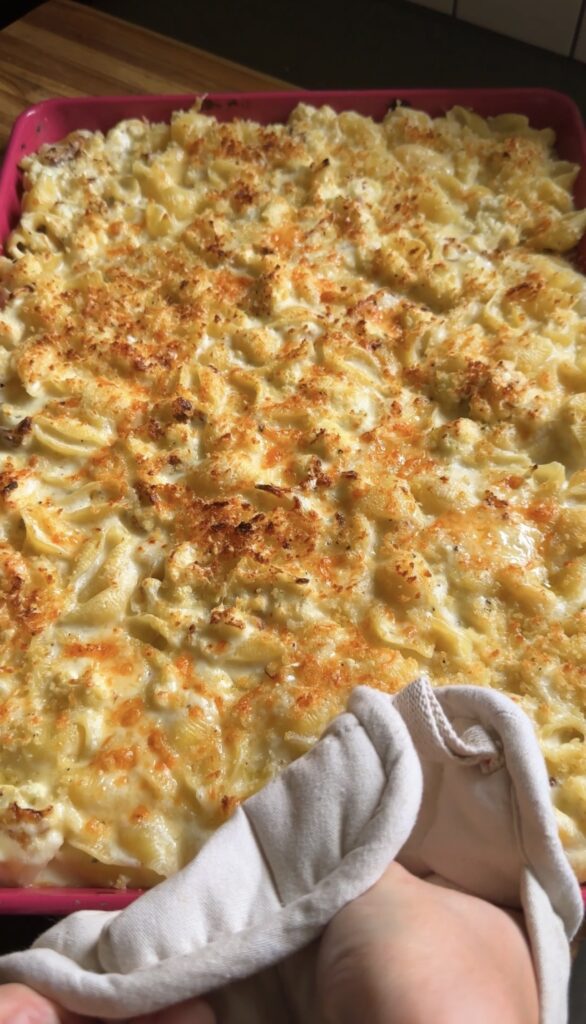
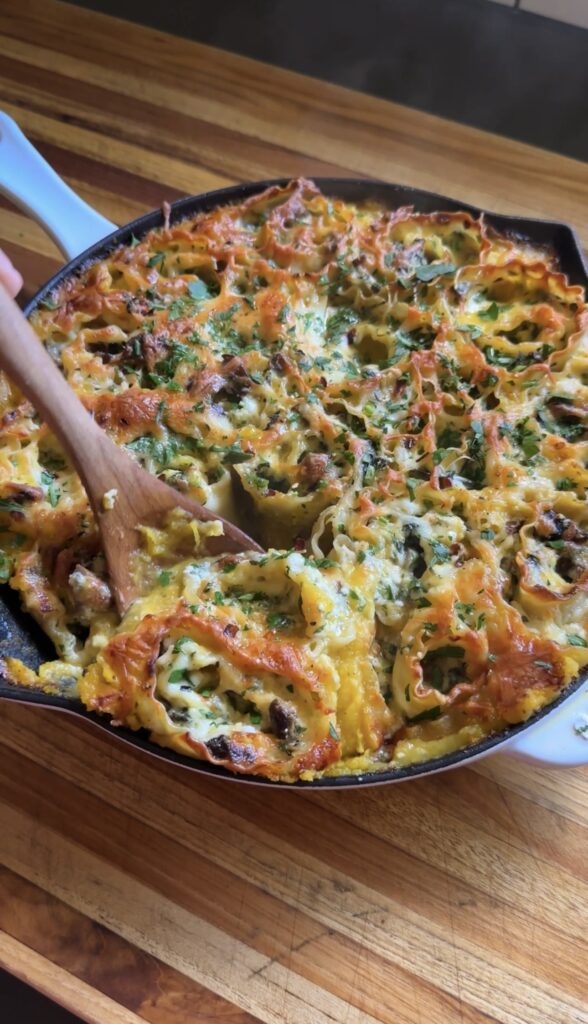
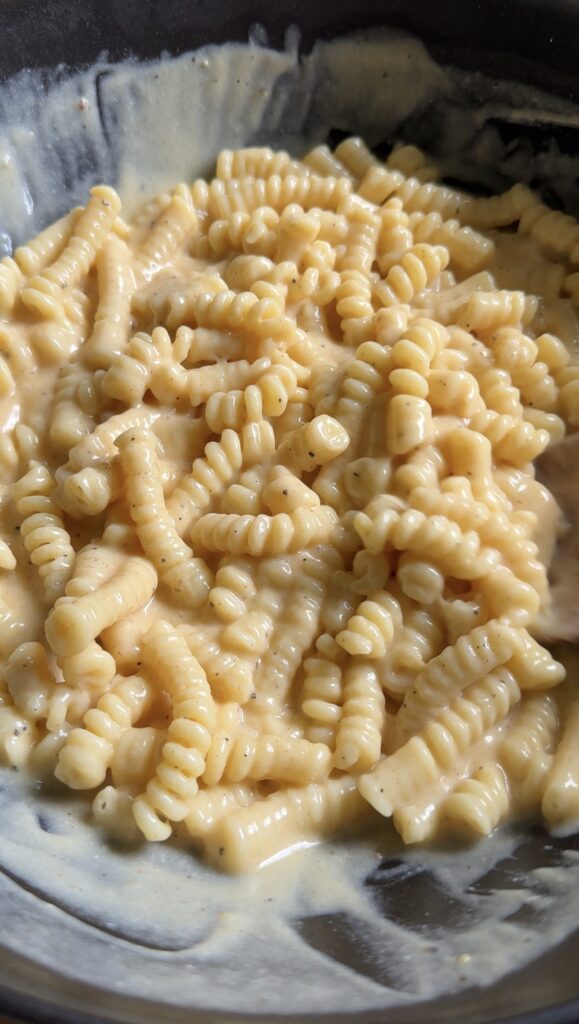
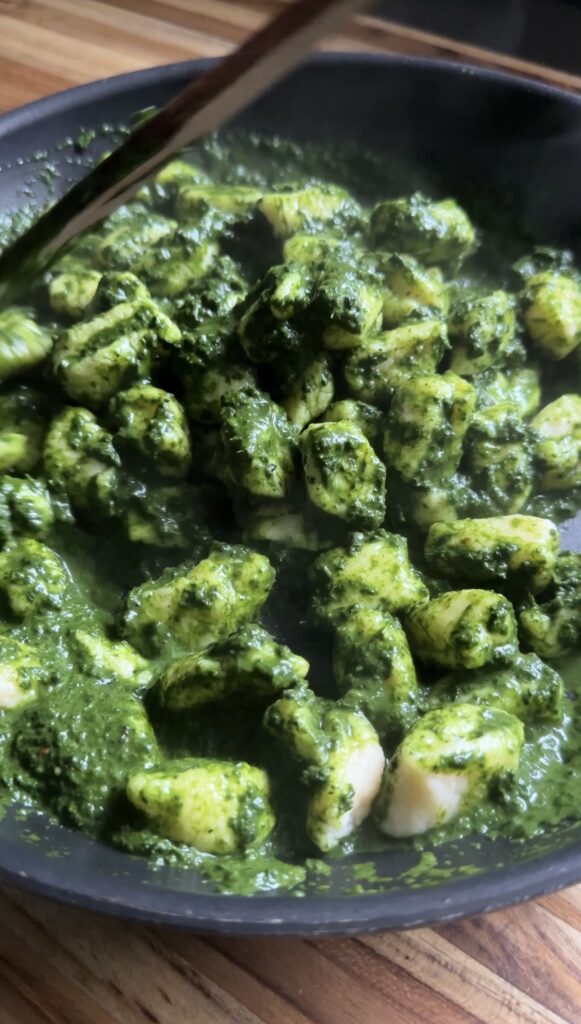

This is excellent!! Such good favor, definitely being making this one often
I’m looking for a calorie count and nutritional info..do you have that for your recipes?
Not currently, but I’ll work on adding them to the recipes!
My partner and I made this today and it was delicious! We are grateful to be introduced to Good Culture cottage cheese! The best! Thanks so much for sharing your recipe!
Absolutely — thank you for making it and sharing your feedback! Isn’t Good Culture so good?! I use it all the time for cooking but also just eating straight up 🙂